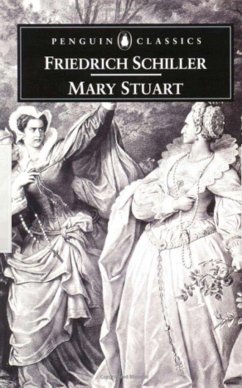Schiller was profoundly shaken by the failure of the French Revolution and devoted many of his greatest works to debating the true nature of freedom. Here, in scenes alternating between the palace of Westminster and the prison at Fotheringhay, he shows us a captive heroine rising above her suffering to gain in insight and spiritual depth. The deceitful and indecisive Elizabeth, trapped by the cruel demands of Realpolitik, can achieve worldly victory only at a terrible moral cost. Schiller's early plays are full of violent actions and language, but he later adopted a far more restrained and formal style to try and capture the emotional essence of complex events. Perhaps more than any of his other tragedies, Mary Stuart achieves a perfect balance between the "classical," "Shakespearean," and "romantic" elements of his genius.
Hinweis: Dieser Artikel kann nur an eine deutsche Lieferadresse ausgeliefert werden.
Hinweis: Dieser Artikel kann nur an eine deutsche Lieferadresse ausgeliefert werden.









